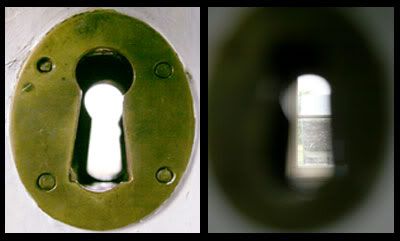
From the Front to the Back
What's the difference between denial and moving on? For many abuse survivors, it is very common to either minimize the impact of abuse or to keep it away from their conscious memories, pretending that it never happened. Of course, whether the abuse is extremely severe or minimally severe - the damage always has an impact that can impair your ability to live in a healthy way. When you begin to unpack that damage and begin your abuse recovery, several things must take place.
1. You acknowledge that what happened, really happened.
2. You acknowledge that abuse has damaged how you think about yourself, others, and God.
3. You acknowledge that you need to find answers to help you resolve these issues.
4. You identify (at least to yourself) those who exploited, violated, and abused you. This includes not only the active abusers, but the other individuals who did not or could not protect you.
At the beginning of the abuse recovery process, things can get very intense. It stands to reason that when you awaken the ugliness of abuse, you expend enormous amounts of energy. After all, if you've spent years running, hiding, pretending, ignoring, and compensating, when you suddenly focus on all that you've been avoiding and honestly deal with it, it can completely exhaust you.
Abuse recovery, especially in the early stages, can completely occupy your thoughts. It becomes the centerpiece of how you see, feel, think, believe, and act. That's one reason that counseling is important. To have a skilled person help you with this can be stabilizing and keep you accountable during these intense phases of your journey.
In fact, this intensity is exactly why some people prematurely stop working on their recovery. It simply feels like too much. To some, it may seem easier to go back and pretend everything is normal than to face such overwhelming ugliness, pain, and damage. Of course, the problem with that is the damage doesn't go away. It will resurface with a vengeance at some point, creating more damage or pain. You can count on that.
But there is balance to all of this. Once you face these difficult experiences, memories, realities, and damage, they lose much of their power over you. The secrets are diminished, the pain is acknowledged, the issues are better understood, and the strategies are developed to live in a healthier way. In other words, abuse settles into the background of your life. It no longer takes center-stage. It is part of your history, but it does not have to dominate your future. The scars it left can be navigated around. Healthy choices can replace self-sabotage. Strategies can help you cope with difficult relationships.
The cycle of recovery is most definitely ebb and flow. You will have ups and downs. Intensity and calm. Rage and joy. Mis-steps and victories. But as you continue this journey beyond abuse, your courage to do so will mean that what was once "in your face," occupying all of your energy and vision, has settled into a corner where it will not interfere nearly as much as it used to.



No comments:
Post a Comment